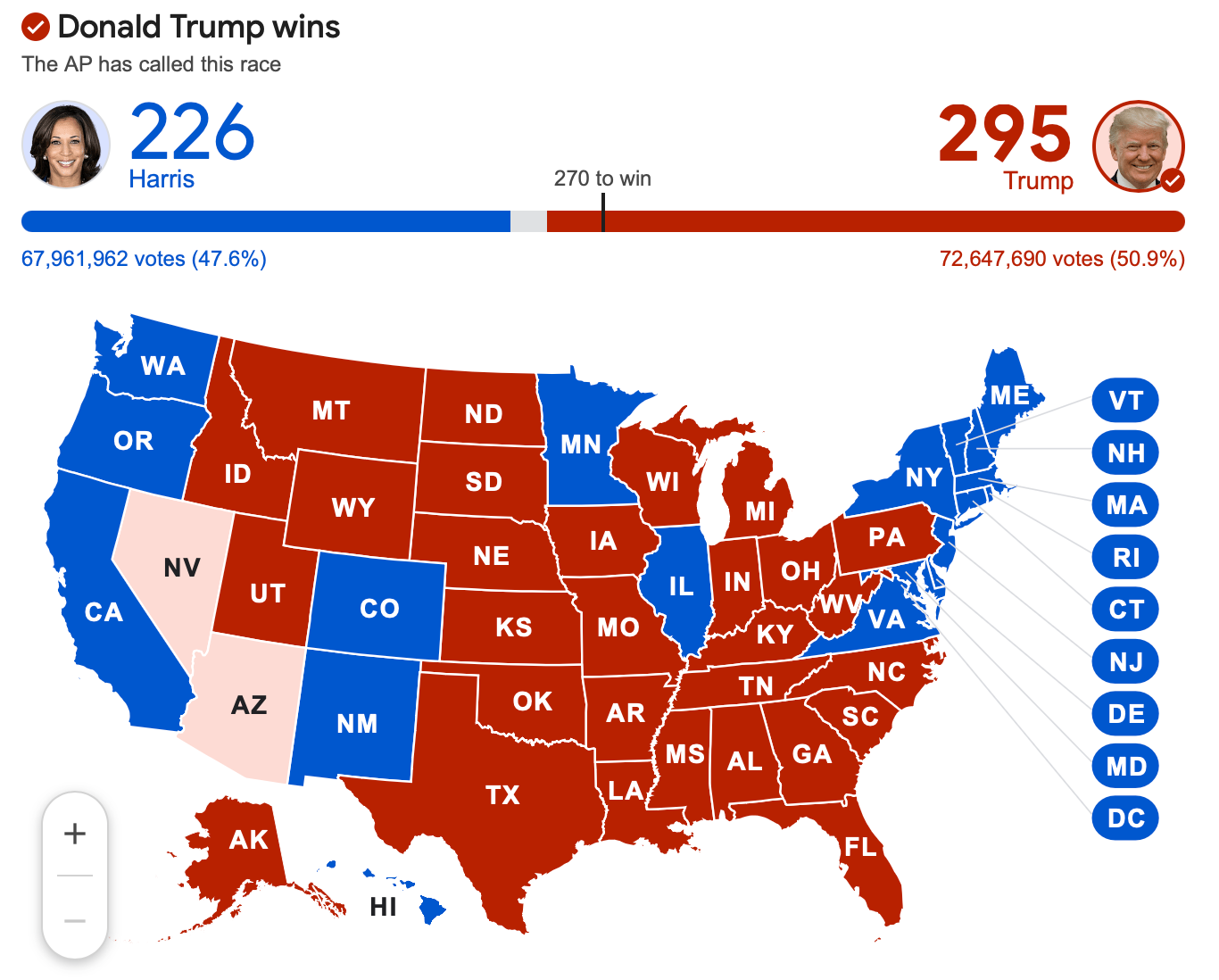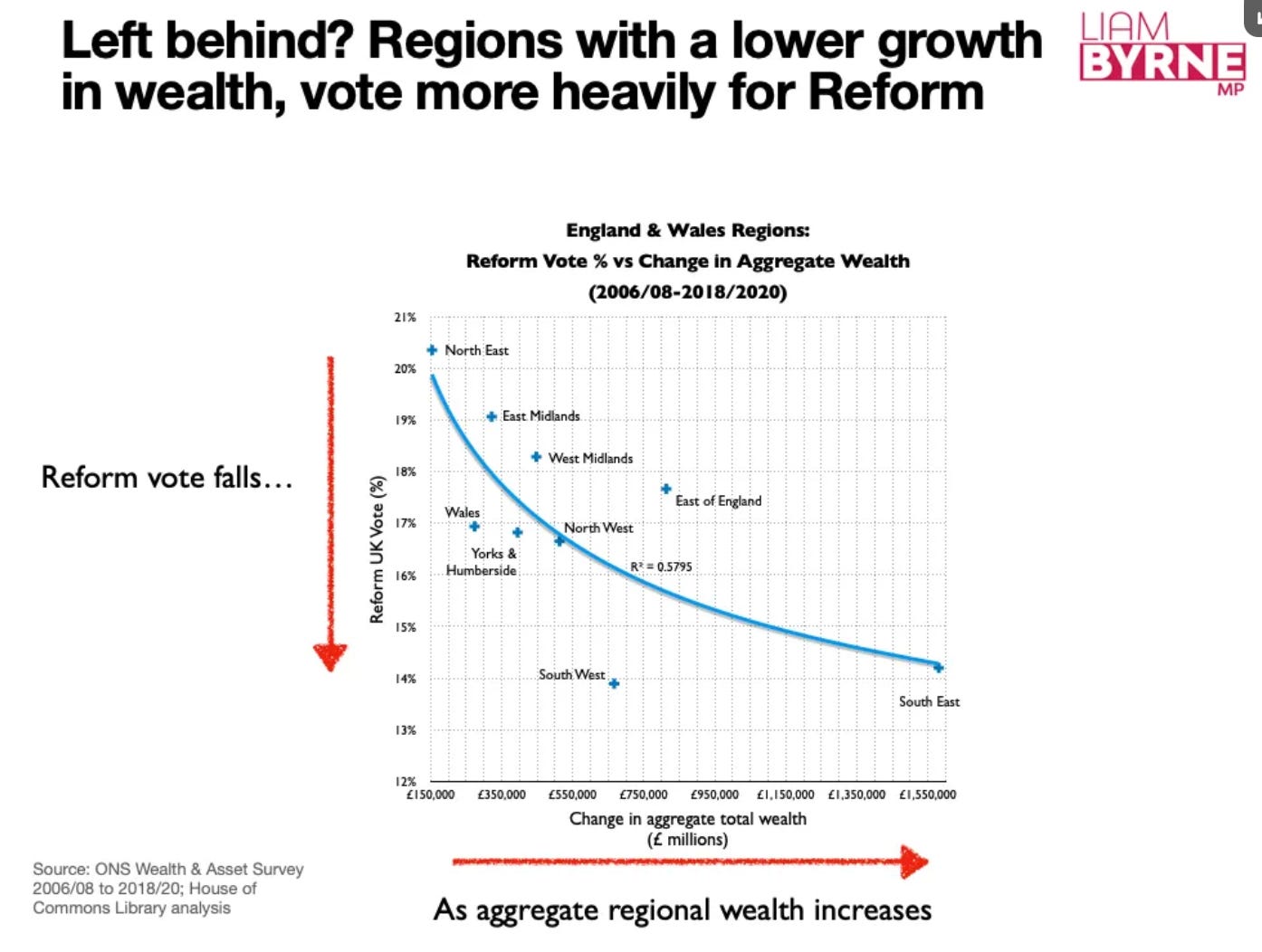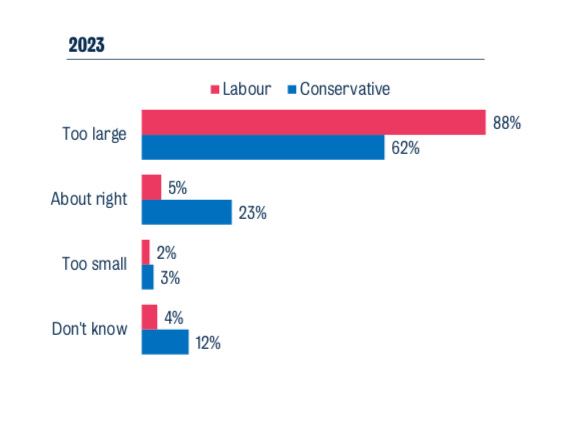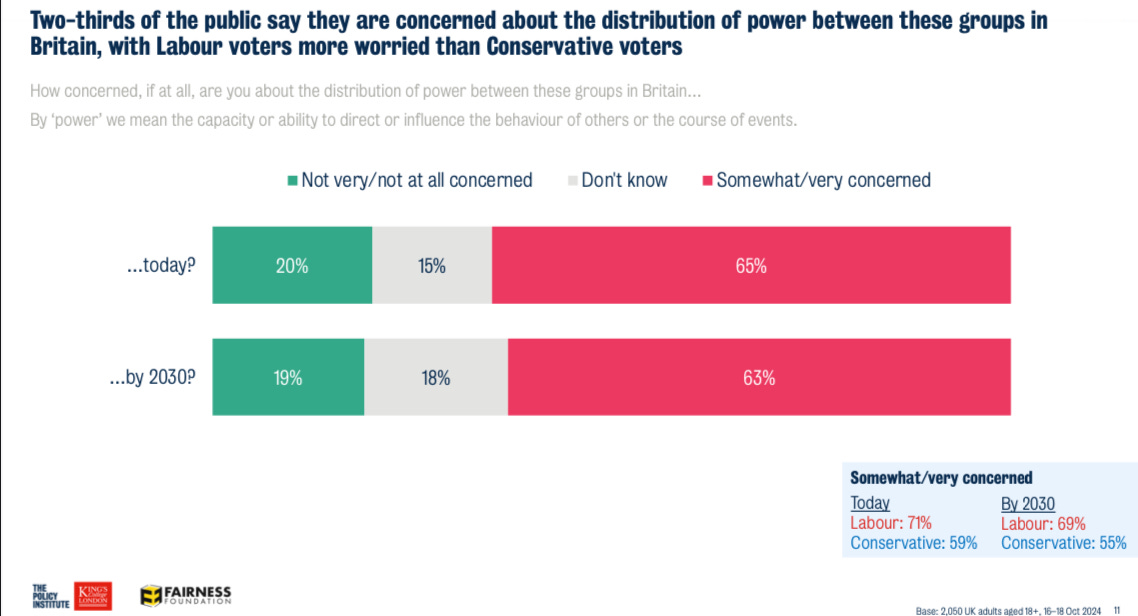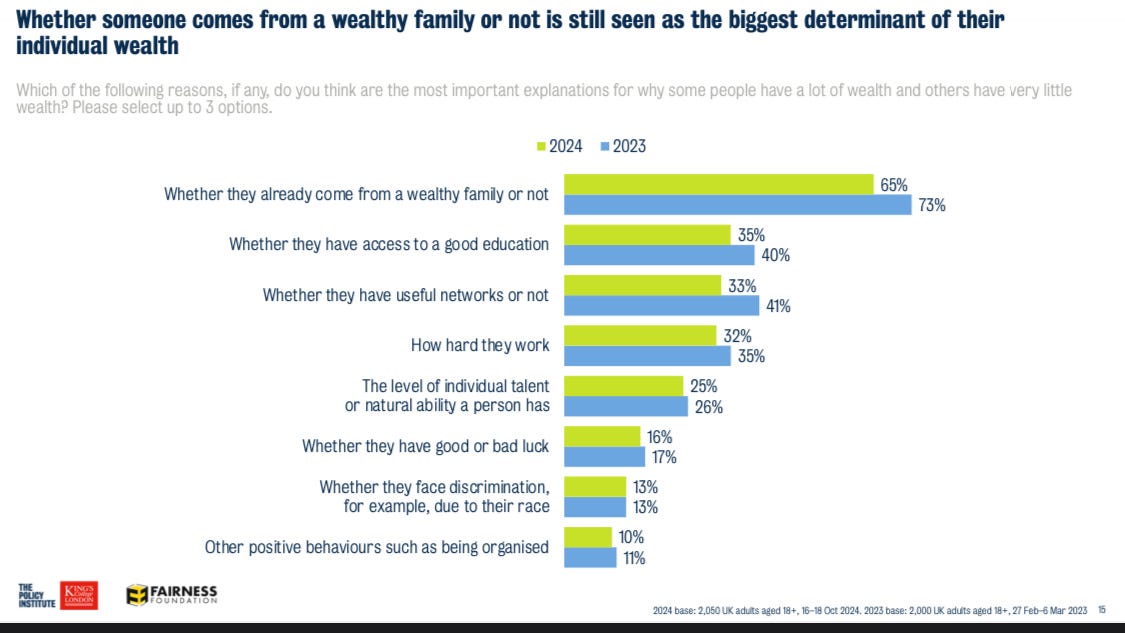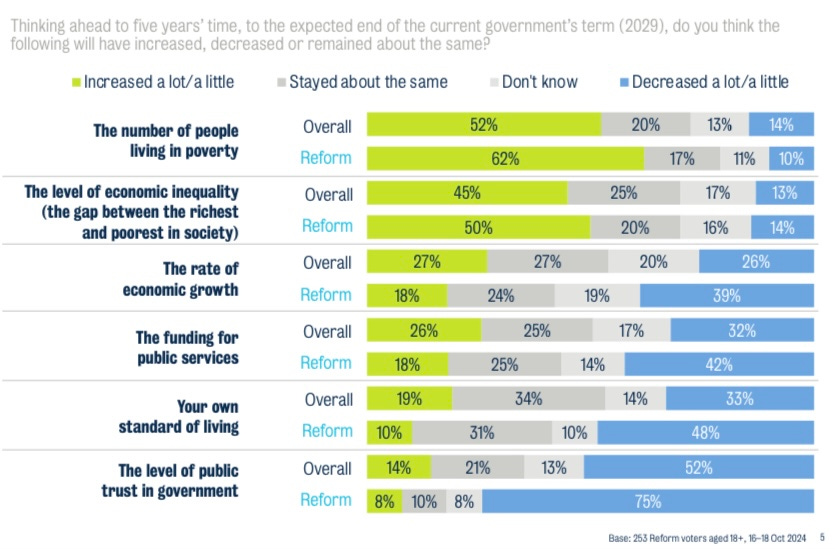Trump's Omen
President Trump's re-election sends a warning to progressives around the world. If we don't fix inequality, the populists rise to power will continue.
In the end, it wasn’t even close. But the scale of President Trump’s emphatic re-election is not just a shock; it’s a warning to Labour and the European left. Unless we find effective ways to address the yawning chasm of inequality dividing our nations, populists everywhere will continue their onward march.
It will be a few days before we can examine the details of Vice President Harris’s defeat. However, one clear takeaway from President Trump’s previous victory remains relevant. The regions left behind by American growth—those on the sharp end of growing inequality—were far more likely to vote for Trump.
But guess what?
The same dynamics apply in the UK, France, and Scandinavia. In these places, the regions where wealth growth lagged behind the national average are the very places that supported Brexit, Le Pen in France, and the far right in Scandinavia. In a seminal piece of political science research four years ago, authors Ben Ansell and David Adler noted that “the geography of wealth inequality offers a convincing explanation for the pattern of populist vote share.”
Trump’s re-election shows that these forces are not dissipating; indeed, they may be growing stronger. And the same dynamics were all too clear in Britain’s last general election.
In a new analysis of the election results, I examined the relative increases in aggregate wealth since 2006/08 and the Reform vote in each region during the 2024 general election. A clear pattern emerged: the regions where wealth grew the least—the North East and the East and West Midlands—had higher Reform votes. Meanwhile, where wealth growth was highest, in the South East, the Reform vote was lowest.
This sends a clear message to Labour. Bidenomics-style investment is important, but it’s not enough. Investment takes a long time to yield results, yet voters’ patience is short—and few feel optimistic about the future.
In fact, new research published by the Policy Institute at King’s College on Tuesday night in the House of Commons shows that here in the UK, people believe the wealth gap between rich and poor is too wide - but they do not expect this to change by the end of the current parliament.
Across both left and right, King’s found that voters believe the wealth gap is simply too big. As you’d expect that sentiment is felt most strongly by Labour voters but almost two thirds (62%) of Tories also agree.
Crucially, these feelings shape how people feel about who hold the power in Britain. Between 60-70% of people on right and left are now worried about the distribution of power in Britain, and most people feel it is the top 1% who now hold more power than national governments.
In turn, this affects what people think it takes to get on in life. Things are now so bad that people now believe that ‘hard work’ is only the fourth most important quality in becoming richer. Far more important is the family one is born to.
The implication is pretty grim: people no longer think that Britain is a meritocracy. But do they yet feel that Labour will change things? The blunt answer is: not yet.
52% of people think the numbers living in poverty will increase over the next five years.
Reform voters are more pessimistic still: 62% of Reform voters think poverty will increase
Only 10% of Reform voters think their standard of living will improve over the next five years; and
Worst of all, just eight per cent of Reform voters think the level of trust will improve in the next five years, while three quarters of Reform voters think trust in government will decline.
These sentiments serve as a clear warning.
If we don’t address this, we too will face the kind of populist surge that brought Trump back into office.
The remedy is straightforward: investment in our economy is critical, but just as essential is a project that connects rising prosperity to the families and regions that feel left behind.
This project must not only raise real incomes but also improve the wealth of voters who have been bypassed by the surge in the wealth of the top 1% - who, let’s not forget have increased their wealth by forty-one times more than everyone else since 2010.





